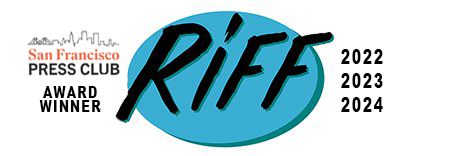Q&A: Citizen Cope on ‘Heroin and Helicopters,’ his role as an artist

Citizen Cope. Courtesy photo.
In the seven years between his 2012 album, One Lovely Day, and this spring’s Heroin and Helicopters, Clarence Greenwood had a daughter and lost his father. The singer-songwriter, better known as Citizen Cope, also toured consistently. He didn’t set out to avoid releasing music for such a long stretch, but neither was he willing to force songs that didn’t satisfy him.
BottleRock Napa Valley
May 24 to 26
Napa Valley Expo
Tickets: General admission $160-$360.
That has led the 50-year-old Washington, D.C. rock, blues and soul musician to his seventh album.
“I just think that your life reflects your music,” Greenwood said of the new music. “Life reflects what you do creatively.”
Citizen Cope titled the record Heroin and Helicopters for a conversation he had with one-time collaborator Carlos Santana, who told Cope (as he’s known to friends) to avoid both. The drugs reference was self-explanatory and by “helicopters” Santa was referring to the deaths of San Francisco concert promoter Bill Graham, as well as guitar great Stevie Ray Vaughn. To Greenwood both represent addiction; not just to drugs, but to shortcuts.
“We’re addicted in society to not just the opioid epidemic, but we have addictions to conflict, addictions to computers and cell phones. We’re addicted to getting in the helicopter, and we’re addicted to getting somewhere fast and not having quality stuff,” he said. “We want to get there and get somewhere fast. We don’t want to enjoy the journey. Even though that is not what [Santana] was talking about, it seemed like a very poignant term for today’s society.”
Speaking a few hours before a recent show in Las Vegas, Citizen Cope spoke about Heroin and Helicopters and his role and responsibility as an artist.
RIFF: There are some pretty poignant social justice themes that run throughout the new album. They begin with, “The River.” What are you hoping to add to that conversation?
Citizen Cope: I think my records kind of speak for themselves. … We know what’s going on society but … historically, people from Emmett Till to a lot of other people, have been taken down to the river, and society has accepted it, and lived with it and not addressed it. That’s the times we live in now. Everyone’s reaping the benefits of the suffering of others. That’s how most of us are able to actually live—because others have suffered.
Is there a song on the record that is your response to that, or a message to inspire people to do better?
No. I think the point of an artist is just to feel the pulse of the people he wants to speak to. So that’s really what that song is about. There’s other songs on the record that deal with things that are lighter. And the second part of that song really answers that song.
What story or stories are you telling on “Yella?”
It’s kind of setting a scene of a young kid playing baseball and striking out, then growing up; becoming a man. All of us have struck out in life. I just used the baseball theme. At that moment it seems like the worst thing in the world. And then you realize that you’ve learned that struggle and loss is the point of life—that it’s a gain. That is what the whole record is. Everything is a journey for personal growth, and I’m not saying anything like, “Oh, God! Woe is me!” Or, “Woe is the world,” or “woe is this person,” on “The River.” It’s just reality. But there is also an immense amount of positivity and growth that comes out of struggle, loss and pain. It’s actually amazing.
The opener, “Duck Confit,” is considerably different from anything else on this album. Why did you want to open up with a song like that? Why did you purposefully keep it stripped back?
It’s a spoken word piece. When you start a record, you want to make a statement. I think that record did that for me.
You had Heroin and Helicopters done last summer, but then you went away to Jamaica for a bit. Something during that trip convinced you to take a couple of songs out and to write a couple of others. What was the album missing at that point?
I feel like you go back and listen to something and you think it’s good, and then you come back and you say, “It can be better.” That’s really a filter that you use as an artist. You have to be the one that says, “OK, this can be better.” That’s what that was about. You don’t want to put something out just for the sake of putting out, just ‘cause it’s done.
What songs did you add?
“Caribbean Skies,” “Sally Walks,” “All My Love” and “Yella.”
I heard you also have a lot of material already ready to go for that next record. I presume it shouldn’t be another five or six or seven years until you get to that point?
It’s probably going to be about another year.
Follow editor Roman Gokhman at Twitter.com/RomiTheWriter.
